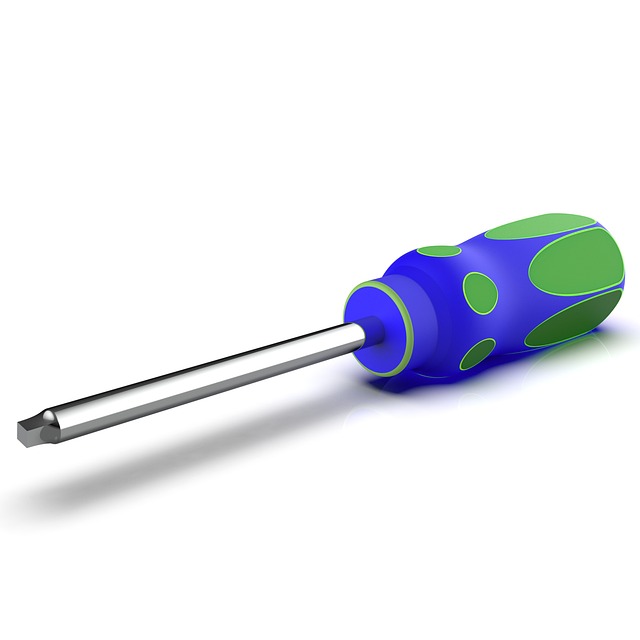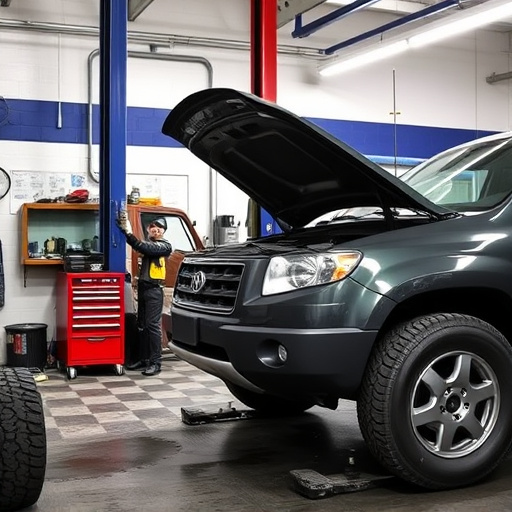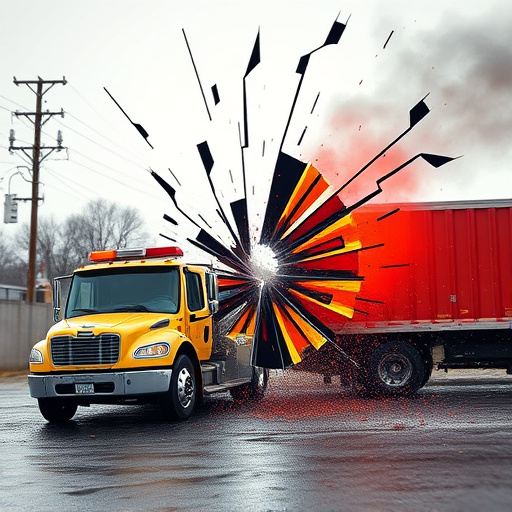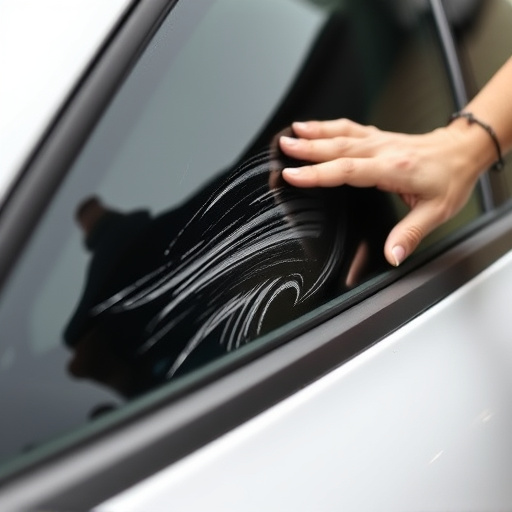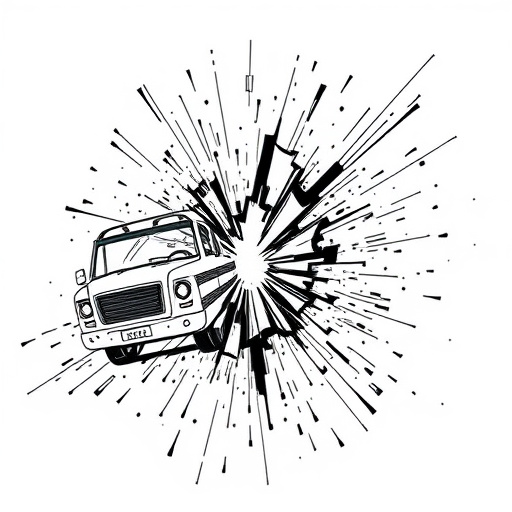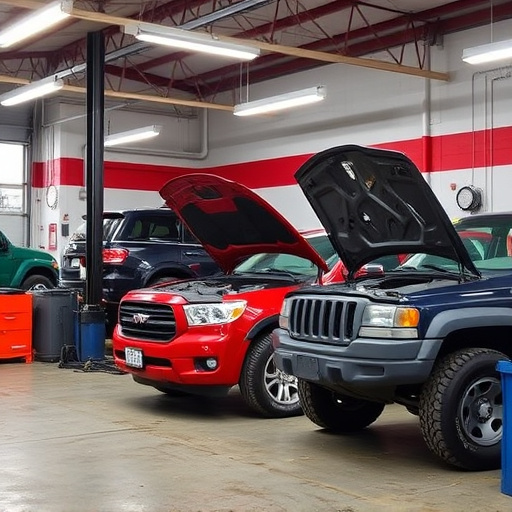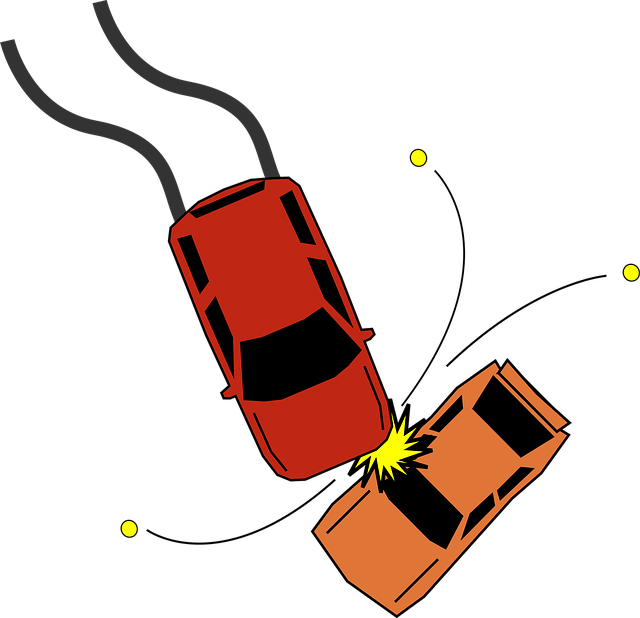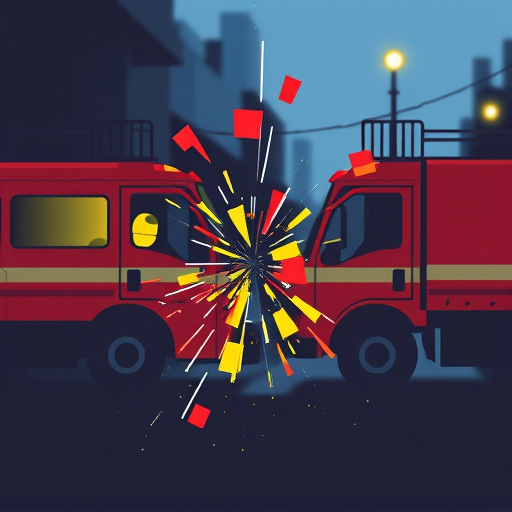Mercedes radar recalibration is essential for maintaining optimal vehicle performance and safety. Environmental factors can degrade sensor accuracy over time, affecting distance detection and object tracking. Regular recalibration fine-tunes sensor settings, improving communication between advanced driver-assistance systems (ADAS) and enhancing features like adaptive cruise control, lane-keeping assist, and collision avoidance, ultimately leading to better road safety and vehicle dynamics.
Mercedes radar recalibration is a critical process ensuring optimal performance and safety for Mercedes vehicles equipped with advanced driver-assistance systems (ADAS). This article delves into the intricacies of Mercedes radar systems, highlighting their role in autonomous driving. We explore how recalibration enhances system communication accuracy, leading to improved ADAS functionality. By understanding the benefits and best practices associated with Mercedes radar recalibration, owners can maintain peak performance and enhance overall driving experience.
- Understanding Mercedes Radar Systems: The Foundation
- The Role of Recalibration in Enhancing Performance
- Accurate Communication: Benefits and Best Practices
Understanding Mercedes Radar Systems: The Foundation

Mercedes radar systems are a complex network of sensors designed to monitor and interpret the vehicle’s surroundings, playing a crucial role in active safety features. These systems rely on accurate data input to function optimally, which is why Mercedes radar recalibration is an essential process. Recalibration ensures that each sensor within the network communicates effectively with the rest, providing a seamless and precise picture of the car’s environment.
The foundation of this accuracy lies in the intricate setup of the radar system, which includes various components like antennas and processing units. Over time, factors such as environmental changes or damage to the car bodywork can impact the performance of these components. Automotive restoration techniques, including Mercedes radar recalibration, are employed to restore optimal function by fine-tuning these systems, guaranteeing that every sensor works in harmony for enhanced safety features and improved driving dynamics.
The Role of Recalibration in Enhancing Performance

Mercedes radar recalibration plays a pivotal role in enhancing the performance and safety of the vehicle. Over time, various factors such as weather conditions, road debris, and regular use can affect the accuracy of the radar system, leading to potential inaccuracies in distance detection and object tracking. Recalibration ensures that every component of the Mercedes radar system—from sensors to processing units—is functioning optimally. This meticulous process involves adjusting the settings to match the specific environmental conditions, effectively “re-training” the system to provide precise data.
By regularly recalibrating, auto body repairs and vehicle paint repair processes can be mitigated as potential issues are caught early on. Moreover, it improves the overall communication accuracy between different systems within the car, including advanced driver-assistance systems (ADAS). This results in smoother operations, better response times, and ultimately, enhanced safety features such as adaptive cruise control, lane-keeping assist, and collision avoidance systems, making every drive more secure and efficient.
Accurate Communication: Benefits and Best Practices

Mercedes radar recalibration is a critical process that ensures every component of the vehicle’s safety system operates in perfect harmony. Accurate communication between various sensors and modules is paramount for the system’s effectiveness. When the radar recalibration is done correctly, it enhances the overall performance and reliability of collision avoidance systems, adaptive cruise control, and lane keeping assist – all features designed to protect drivers, passengers, and other road users.
Benefits of precise communication extend beyond safety. It improves vehicle dynamics, leading to a smoother ride and better handling. Moreover, regular Mercedes radar recalibration, as part of scheduled car bodywork services or collision repair, can prevent costly repairs down the line. Auto body services providers specializing in these systems use advanced tools and techniques to calibrate the radar accurately, ensuring optimal performance and peace of mind for Mercedes owners.
Mercedes radar recalibration is a vital process that ensures the seamless communication and optimal performance of the vehicle’s advanced driver-assistance systems (ADAS). By recalibrating the radar sensors, the system can accurately detect and interpret surrounding objects, enabling safer and more efficient driving. This precision is crucial for features like adaptive cruise control, lane keeping assist, and collision avoidance, ultimately enhancing the overall driving experience and fostering a safer automotive landscape.

